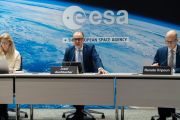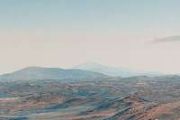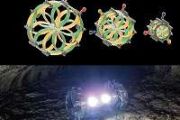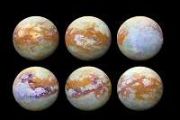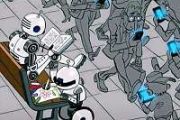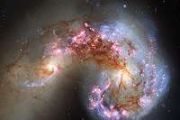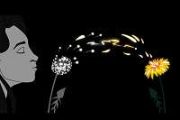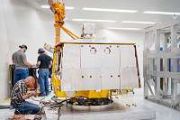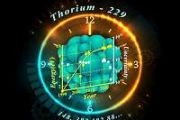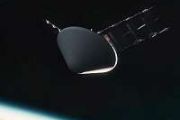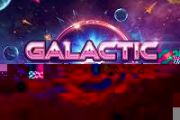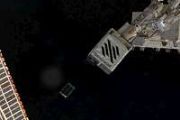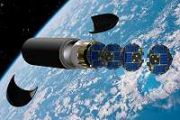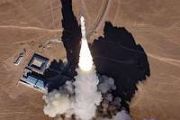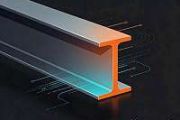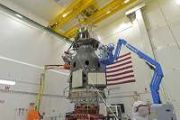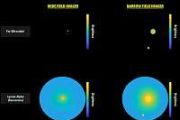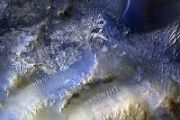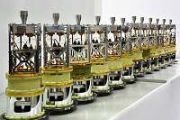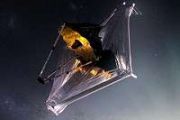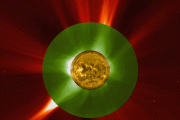
Copernical Team
Ariane 6 first flight highlights
 Video:
00:02:06
Video:
00:02:06
Europe’s new rocket Ariane 6 powered into space on 9 July 2024 from a newly built dedicated launch pad in French Guiana. Liftoff occurred at 16:00 local time (20:00 BST, 21:00 CEST).
Europe’s new rocket Ariane 6 powered Europe into space taking with it a varied selection of experiments, satellites, payload deployers and reentry demonstrations that represent thousands across Europe, from students to industry and experienced space actors.
This inaugural flight, designated VA262, is a demonstration flight to show the capabilities and prowess of Ariane 6 in escaping Earth's gravity and operating in space. Nevertheless, it had several passengers
Hubble finds evidence for rare black hole in Omega Centauri

An international team of astronomers has used more than 500 images from the NASA/ESA Hubble Space Telescope spanning two decades to detect seven fast-moving stars in the innermost region of Omega Centauri, the largest and brightest globular cluster in the sky. These stars provide compelling new evidence for the presence of an intermediate-mass black hole.
Europe's Ariane 6 rocket successfully launches for first time

Europe's new Ariane 6 rocket blasted off for the first time smoothly on Tuesday, carrying with it the continent's hopes of regaining independent access to space.
The much-delayed inaugural flight of the European Space Agency's most powerful rocket yet launched from Europe's spaceport in Kourou, French Guiana at 4pm local time (1900 GMT).
Crews on the ground at the launch site, which is surrounded by jungle on the South American coast, applauded as the rocket soared into clear skies.
Ariane 6's first launch, which was originally planned for 2020, is hoped to bring an end to a difficult time for European space efforts.
Since the last flight of its workhorse predecessor, Ariane 5, a year ago, Europe has been unable to launch satellites or other missions into space without relying on rivals such as Elon Musk's US firm SpaceX.
ESA chief Josef Aschbacher said it was a "very important moment for Europe".
UC Riverside Study Offers Insights into Early Life on Earth
 Despite decades of research, much remains unknown about the origins and early evolution of life on Earth. A recent paper from the University of California - Riverside aims to bridge this gap, suggesting future studies that could also inform climate change predictions and the search for extraterrestrial life.
"This paper strives to inform the Earth sciences community where the research need
Despite decades of research, much remains unknown about the origins and early evolution of life on Earth. A recent paper from the University of California - Riverside aims to bridge this gap, suggesting future studies that could also inform climate change predictions and the search for extraterrestrial life.
"This paper strives to inform the Earth sciences community where the research need Predicting and Mitigating the Impact of Auroras on Earth's Infrastructure
 Auroras, long a source of wonder and myth, have a newfound significance in our technologically reliant world. The same space weather phenomena that create these stunning light displays can also induce currents that threaten electrical infrastructure, such as pipelines. Recent research published in *Frontiers in Astronomy and Space Sciences* reveals that the angle at which interplanetary shocks s
Auroras, long a source of wonder and myth, have a newfound significance in our technologically reliant world. The same space weather phenomena that create these stunning light displays can also induce currents that threaten electrical infrastructure, such as pipelines. Recent research published in *Frontiers in Astronomy and Space Sciences* reveals that the angle at which interplanetary shocks s Researchers Uncover New Insights into Neutron Star Matter
 Neutron stars, with their extreme densities and mysterious interiors, remain enigmatic to astrophysicists. Despite having a radius of around twelve kilometers, they can possess over twice the mass of the sun, with matter packed up to five times denser than an atomic nucleus. Alongside black holes, neutron stars are the densest objects in the universe. Under such intense conditions, matter can tr
Neutron stars, with their extreme densities and mysterious interiors, remain enigmatic to astrophysicists. Despite having a radius of around twelve kilometers, they can possess over twice the mass of the sun, with matter packed up to five times denser than an atomic nucleus. Alongside black holes, neutron stars are the densest objects in the universe. Under such intense conditions, matter can tr First SKA-Mid Dish Installed in South Africa
 A team from the SKAO, South African Radio Astronomy Observatory (SARAO), and China's CETC54 successfully mounted the 15-meter-wide main reflector onto the SKA-Mid telescope pedestal in South Africa. This milestone is part of a larger effort involving a consortium from ten countries, led by CETC54, which is also manufacturing the dishes.
Over the past year, construction has accelerated at S
A team from the SKAO, South African Radio Astronomy Observatory (SARAO), and China's CETC54 successfully mounted the 15-meter-wide main reflector onto the SKA-Mid telescope pedestal in South Africa. This milestone is part of a larger effort involving a consortium from ten countries, led by CETC54, which is also manufacturing the dishes.
Over the past year, construction has accelerated at S NASA Mission to Study Mysteries in the Origin of Solar Radio Waves
 Scientists first noticed these radio waves decades ago, and over the years they've determined the radio waves come from solar flares and giant eruptions on the Sun called coronal mass ejections, or CMEs, which are a key driver of space weather that can impact satellite communications and technology at Earth. But no one knows where the radio waves originate within a CME.
The CURIE mission a
Scientists first noticed these radio waves decades ago, and over the years they've determined the radio waves come from solar flares and giant eruptions on the Sun called coronal mass ejections, or CMEs, which are a key driver of space weather that can impact satellite communications and technology at Earth. But no one knows where the radio waves originate within a CME.
The CURIE mission a New Method to Enhance Microbe Viability for Space and Extreme Environments
 Researchers at Brigham and Women's Hospital and MIT have developed a novel technique to ensure microbial therapeutics remain effective under extreme conditions. These advancements are pivotal for applications in space exploration, healthcare, and agriculture.
Extremophiles, microorganisms thriving in harsh environments like Yellowstone's hot springs and Antarctica's icy depths, offer insig
Researchers at Brigham and Women's Hospital and MIT have developed a novel technique to ensure microbial therapeutics remain effective under extreme conditions. These advancements are pivotal for applications in space exploration, healthcare, and agriculture.
Extremophiles, microorganisms thriving in harsh environments like Yellowstone's hot springs and Antarctica's icy depths, offer insig Exolaunch Deploys Satellites on Ariane 6 Inaugural Launch
 Exolaunch, a global leader in launch mission management, integration, and satellite deployment services, has successfully deployed four satellites aboard the maiden flight of Arianespace's Ariane 6. The launch took place on Tuesday, July 9 at 1600 GFT from the Guiana Space Centre in Kourou, French Guiana. This mission, representing customers ESA, NASA, and Spacemanic, underscores Exolaunch's piv
Exolaunch, a global leader in launch mission management, integration, and satellite deployment services, has successfully deployed four satellites aboard the maiden flight of Arianespace's Ariane 6. The launch took place on Tuesday, July 9 at 1600 GFT from the Guiana Space Centre in Kourou, French Guiana. This mission, representing customers ESA, NASA, and Spacemanic, underscores Exolaunch's piv 
